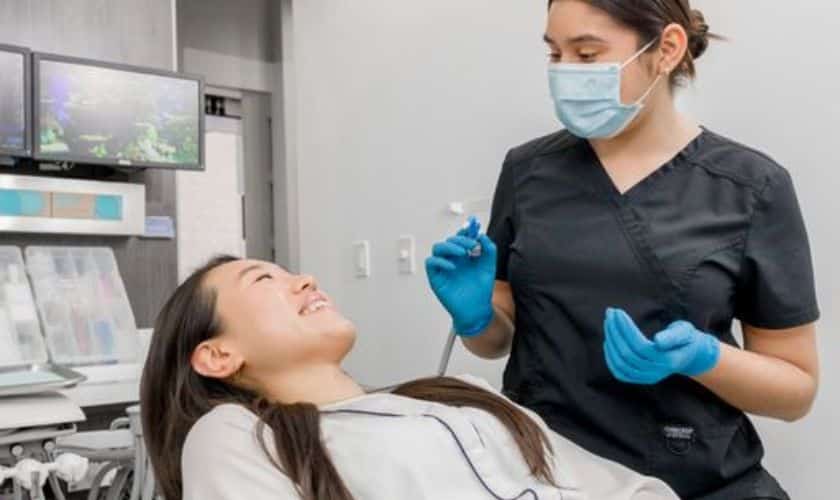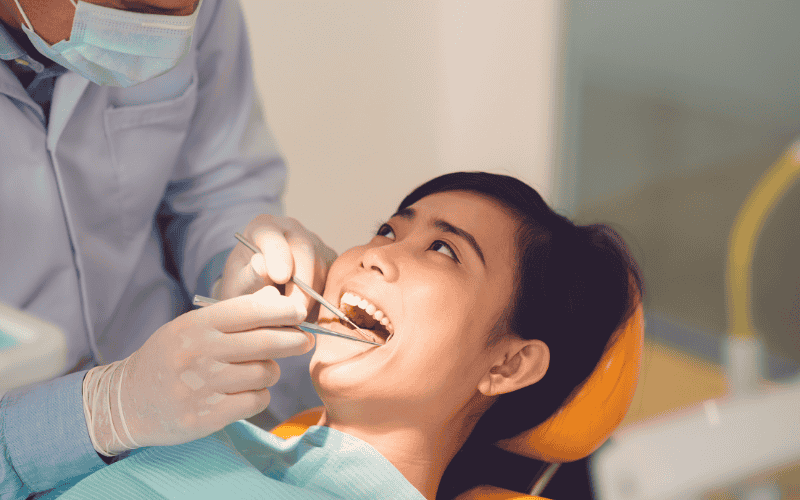Pearl Dental Blog

How to Maintain Oral Health After Getting Dental Implants
Dental implants are a modern marvel in dentistry, offering a permanent solution to tooth loss that not only restores function but also enhances aesthetics and overall oral health. However, like natural teeth, implants require diligent care to ensure they remain healthy and functional for years to come. Proper oral hygiene and regular maintenance are crucial to preventing complications such as infection or implant failure. In this blog, we will explore everything you need to know about maintaining oral health after getting dental implants.
Understanding Dental Implants
Before delving into maintenance tips, it’s essential to understand what dental implants are and how they function. Dental implants are artificial tooth roots made of titanium that are surgically placed into the jawbone beneath the gums. They serve as a sturdy foundation for replacement teeth, which are custom-made to match the natural teeth in appearance and function.
Unlike dentures or bridges, dental implants are permanent fixtures that integrate with the jawbone through a process called osseointegration. This integration ensures stability and strength comparable to natural teeth, making implants a preferred choice for many patients seeking a long-term solution to tooth loss.
Initial Post-Implant Care
After undergoing dental implant surgery, the initial healing phase is critical. Your dentist will provide specific post-operative instructions, which typically include:
- Medication: Antibiotics are prescribed to prevent infection, and painkillers are prescribed to manage discomfort.
- Diet: Soft foods and liquids should be used initially to avoid putting pressure on the implants.
- Oral hygiene: Gentle cleaning techniques and prescribed mouth rinses to maintain oral cleanliness without disturbing the surgical site.
- Follow-up appointments: Scheduled visits with your dentist to monitor healing and ensure proper integration of the implants.
Long-Term Oral Hygiene Tips for Dental Implants
Once the initial healing period is over and your implants have successfully integrated with the jawbone, maintaining good oral hygiene becomes crucial for their longevity and overall oral health. Here are some essential tips:
1. Brushing and Flossing
Just like natural teeth, dental implants require regular brushing and flossing to remove plaque and food debris. Use a soft-bristled toothbrush and a non-abrasive toothpaste to brush around the implant crown gently and along the gum line. Consider using an interdental brush or floss threaders to clean hard-to-reach areas between the implants and adjacent teeth.
2. Mouthwash and Antimicrobial Rinses
Your dentist may recommend using antimicrobial mouthwash or rinses to reduce bacteria and plaque buildup around the implants. These products can help maintain a clean oral environment and prevent inflammation of the gums (gingivitis) or more severe gum disease (periodontitis).
3. Regular Dental Check-ups
Schedule routine dental check-ups and professional cleanings with your dentist. These appointments are essential for monitoring the health of your implants, assessing the condition of surrounding tissues, and detecting any early signs of complications such as infection or bone loss.
4. Avoid Tobacco Products
Smoking or using other tobacco products can significantly increase the risk of implant failure and complications. Nicotine restricts blood flow, slowing down the healing process and making it harder for the implants to integrate with the jawbone. If you smoke, consider quitting to improve the long-term success of your dental implants.
5. Maintain a Healthy Diet
A balanced diet rich in vitamins and minerals is essential for supporting overall oral health and the longevity of dental implants. Avoid excessive consumption of sugary foods and beverages that can contribute to plaque buildup and increase the risk of gum disease.
6. Protect Against Teeth Grinding (Bruxism)
If you have a habit of grinding or clenching your teeth (bruxism), discuss this with your dentist. Bruxism can exert excessive pressure on dental implants and natural teeth, potentially leading to damage or implant failure over time. Your dentist may recommend wearing a night guard or other protective devices to prevent damage during sleep.
7. Be Mindful of Implant Complications
Monitor your oral health closely and be aware of any signs or symptoms that may indicate implant complications, such as swelling, pain, mobility of the implant, or changes in the fit of the implant-supported restoration. Promptly report any concerns to your dentist for evaluation and appropriate treatment.
Maintaining oral health after getting dental implants requires commitment to a consistent oral hygiene routine and regular dental care. By following these tips and staying vigilant about your oral health, you can ensure that your dental implants remain strong, functional, and aesthetically pleasing for many years. Remember, your dentist and dental hygienist are valuable resources for guidance and support throughout your implant journey. With proper care, you can enjoy the benefits of a confident smile and improved quality of life that dental implants offer.





